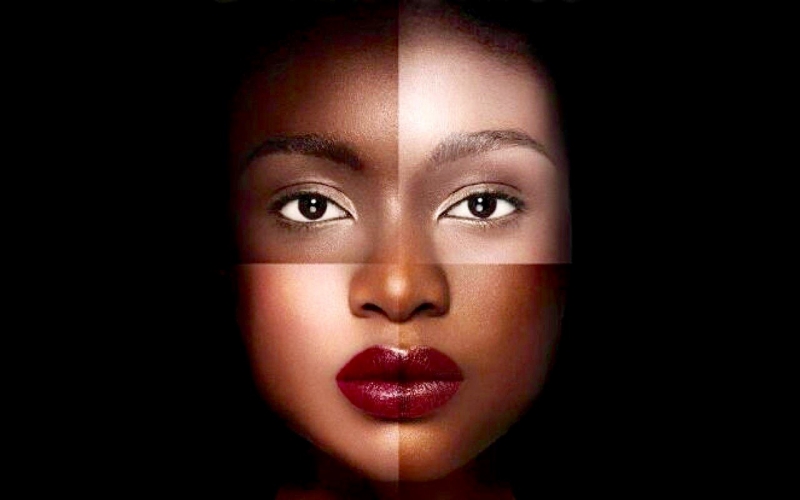The topic surrounding colorism has been circulating well throughout history.
We can trace a lot of the issues that we face as black people back to slavery because quite frankly, that’s where major riffs in our systems began.
And with colorism, it’s no different.
Colorism within the black community dates back to slavery and has since transcended across media, film, and television.
Society views lighter skin people as superior to those of darker skin solely because of their proximity to whiteness.
Not only has this affected the way in which people of color view themselves within their own community.
But it also shifts how blackness is seen within a career, social settings, and relationships.
What is colorism?
 When discussing colorism it is important to be aware that it’s only been an issue in the black community.
When discussing colorism it is important to be aware that it’s only been an issue in the black community.
While it manifests there, it is more wide-spread and exists within all communities of color.
Colorism is not something that white people experience, yet refers to discrimination based on skin color.
Oftentimes, we experience the prejudices of colorism and its effects at a young age.
We’ve heard things like “don’t play outside too long or you’ll get burnt”, or ” you’re too dark to wear that”.
All triggering words for youth who have heard similar statements further perpetuating the idea that lighter is better.
And for some, in their minds, this is true.
How does colorism affect the black psyche?
In the early 1900s, a strong example of colorism was the implementation of the brown paper bag test within African American communities.
This discriminatory act required that an individual’s skin color be the same color or lighter than a brown paper bag in order for that person to receive special privileges.
Early college life further pushed this agenda by incorporating its bias in black fraternities and sororities. They also used the brown paper bag test to determine whether or not you could pledge.

Another example is “the doll tests,” first done in the 1940s, with results that have since been replicated in various countries.
Children who grow up learning that their skin color is labeled “bad” may grow up to foster feelings of self-hate.
Especially if the child is unaware of colorism’s historical roots and lacks an effective support system at home.
Because of these associations in colorism, black people often desire to have lighter skin, straighter hair, and an overall closer resemblance to whiteness, which can be harmful if gone unchecked.
Starting the conversation about colorism
It is clear that colorism plays a role in how we are perceived as black people.
But how exactly do we talk about it without having a heated debate?
We can’t.
Colorism is a sensitive topic to discuss because it brings up feelings of rejection from our past.
Whether in our relationships, childhood experiences, or others, at some point in time colorism has plagued the black community.
The best way to have a constructive conversation about colorism is to leave your bias at the door.
This includes:
- Understanding the damage that colorism has caused amongst the black community
- Speak from a place of experience, rather than hurt
- Listen objectively
- Acknowledge that colorism affects black men too (not just black women)
Colorism not only divides the black community. It divides oneself.
Constantly being at a tug of war with yourself because of the color of your skin is a hard pill to swallow.
The world has been brainwashed into falsely believing that lighter is better, and they’re wrong.
No matter the tone of your skin, black is beautiful and should be celebrated more in our communities.
To learn more about colorism and related topics impacting black culture, follow us on Twitter to stay connected.



